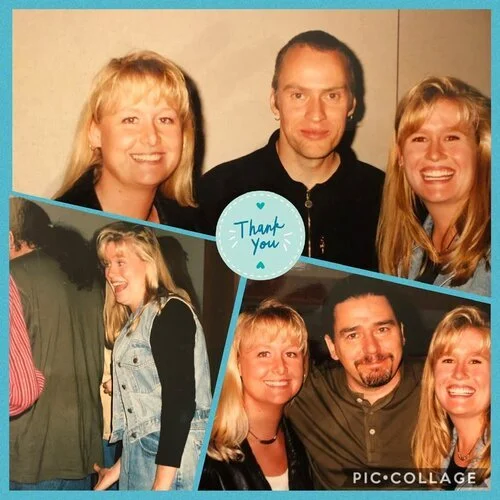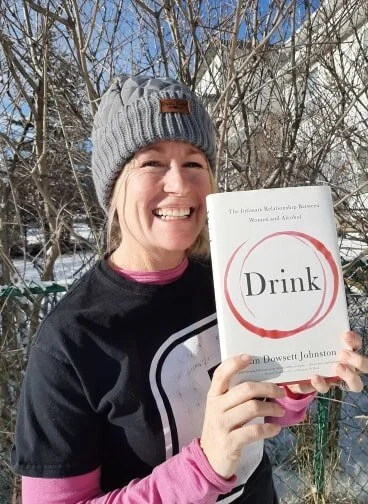Drink
“You’ll have to excuse me, I’m not at my best. I’ve been gone for a month, I’ve been drunk since I left.”
— home for a rest, spirit of the west
I suffered a long time with low self-esteem before I realized that there are TONS of resources in Canada to help, maybe thousands of people and organizations that make it their life mission to help others live their best lives. From family doctors to personal trainers to chiropractors to podcasts to books to phone hotlines to workshops to nutrition to psychologists to innovations in healthcare. I didn’t know where to even start but finally, after meeting my husband, I started to research options to help me get to the root of my dis-ease. To even start the journey to a full, awesome recovery felt overwhelming. All of my random negative thoughts, layers of insecurities and constantly spinning brain (picking up so much more information each day) made it very difficult to think of or plan for a future.
Before I decided to focus on my mental health, I always made one thing a priority, DRINKING.
I didn’t drink every day but when I did, it was usually more than 3 or 4. I could always be counted on and present for day drinking (often joked they were 2 of my favorite words). I LOVED patios and music, pints of beer, meeting new people and, most of all, I loved escaping reality.
I know now that too much drink depletes us mentally and physically. The older we get, the longer it takes to recover. When drinking is used as the main coping strategy for a mental health issue, the problem will just keep getting worse.
Here’s a visual to understand my state (which is also described medically as anxiety):
I’m running through an Ichabod Crane-esque (The Headless Horseman) dark forest and it’s raining and windy. Pieces of wet and matted hair are whipping across my face. With the rain, my panic and the hair, I can’t see where I’m going. I’m stumbling and tripping over roots and uneven ground. I’m soaked, terrified and my clothes are ripped and dirty. I am blind and out of control but I don’t stop flinging myself forward. Desperately running away from something insane and uncontrollable. But there is no end, no safety. I just keep blindly running from it.
Not often but every once in a while the dark forest panic would merge with the binge drinking into a perfect storm. I would usually be crying and relationships would be damaged. Words I would loved to have used to describe myself like, “graceful” or “classy” just bounced off me, down the street and into the gutter, not knowing if they would ever return again. Nights like those were humbling and VERY hard to recover from.
Lots of alcohol consumption doesn’t have a place in a concentrated, determined journey to self love/discovery. One bad night can cause so much guilt, shame and self-loathing that it will put you back down to the bottom of many long, steep staircases of steps. I know I turned away boys that I liked and I’m 100% sure I missed out on some amazing career opportunities because drinking was the focus.
I met with my friend Melissa yesterday to talk about alcohol as a coping mechanism and how socially acceptable it is to abuse it. Marketers portray it as sexy, chic and cool. There are gin, beer and wine advent calendars, fun T-shirts and socks not to mention happy hours. We are surrounded by a very social acceptable, all fun life events include alcoholic drinks culture. Companies and their marketing teams invest hundreds of millions of dollars to tap (haha) into our deepest wishes and target us.
Meet Melissa, who has been sober for almost 5 years.
Both of us agree that at one time in our lives, we took pride in being the drunk ones. It came to be (or we felt) our responsibility to show up and be fun. A saying often heard is, “we can have fun without drinking”. In those days, staying sober never occured to Melissa or myself. We worried that we’d be less fun, less appealing or make others feel uncomfortable if we weren’t drinkers. It was a social coping strategy and a habit we coveted and protected. We also both very much agreed that the feeling didn’t last very long because a good night always comes to an end. Then the feeling gross and the memories of the things we said or did (and the worry of what we might have said or did) came back painfully and slowly throughout the day.
My research into the topic of women addicted to alcohol led me to a book by Canadain author, Ann Dousett Johnson. Here are some of the key aha moments I had while reading the book “Drink”:
Our healthcare system is seeing liver damage in women in their 20s and 30s that they only saw in men in their 60s.
Women aren’t built to metabolize alcohol well as compared to men mainly because we have more body fat than men.
“Since body fat contains little water, there is less to dilute the alcohol consumed. In addition, women have a lower level of a key metabolizing enzyme, alcohol dehydrogenase, which helps the body break down and eliminate alcohol.”
— "drink" book by ann dowsett johnston
Lyndsie makes me laugh.
Heavy use of alcohol (even binge drinking) over several years can cause chronic injury to our liver. Melissa has seen women in their 20s die of liver failure.
The damage done is unique to each woman. No one can determine how much, little or how often will affect our body.
For women, drinking two-three drinks (including wine and beer) on average per day can lead to cirrhosis. Cirrhosis is a condition in which scar tissue replaces healthy liver tissue until the liver cannot function properly.
Many of us drink for a huge number of reasons. I am still a social drinker. I am very aware that it is still sometimes a coping mechanism. When getting mentally healthy was the main priority in my life, It was common for me to take 30-60 day breaks without drinking. I can’t tell you just how essential, effective and healthy those breaks were for my process to feeling so much more happy, healthy and in control of my life.
And do you know when I knew it was time for me to see a doctor and get help?
I was with my fabulous friend Lee (ironic that name eventually joined my last) in my tiny bachelor apartment in my mid twenties. We hadn’t had anything to drink and we smoked a little pot. That night was life changing. My brain started to prioritize my to-do list and realize certain things in my life weren’t aligned with my path. It was fabulous and crazy that this illegal herb was solving problems and discarding unnecessary worry without a stitch of effort from me! For the first time in forever, I felt CLARITY (angels voices singing) It was really mind-blowing how fast and easy it was for me to see it, make a decision and plan the action.
I suspect quite strongly that it is highly possible that that night there was a chemical imbalance in my brain. Full confirmation for me came shortly after. A few honest, non-judgement, long, compassionate, ask questions to understand conversations with an amazing friend (Barbie!!!) led me to discovering that pot didn’t have that effect on everyone. I learned that the intense focus and clarity I experiences are, “actually quite frequent” for some.
That pivotal night began several amazing, difficult, honest and long relationships with many caring healthcare professionals.
Although pot is now legal, I would never advocate it as a coping strategy for mental health issues. I do, however, wonder if it hadn’t been illegal for all of these years, would we see less alcohol abuse which leads to physical abuse and chronic illness?
I often present questions to which I haven’t the answer and one like that, there is no way to ever know.
If you want to know more about the relationship between women & alcohol, this is a fabulous read:
- “Drink” by Ann Dousett Johnson, Canadian writer from Toronto and former vice-principal of McGill University.

